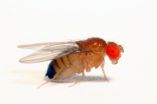(Press-News.org) CHAMPAIGN, Ill. – The male response to depictions of ideal masculinity in advertising is typically negative, which has implications for advertisers and marketers targeting the increasingly fragmented consumer demographic, according to research from a University of Illinois marketing expert.
Cele Otnes, a professor of advertising and of business administration who studies how marketing and advertising shapes consumption, says that men who compare themselves to the hyper-masculine or over-exaggerated male stereotypes in advertising and popular culture experience a range of emotions, including feelings of inadequacy and vulnerability.
"While partying and promiscuity are often depicted in advertising, some men find these images to be negative portrayals of their gender and are, in fact, turned off by them," said Otnes, the Investors in Business Education Professor of Marketing at Illinois. "So it's important to recognize that some men may react negatively or be adversely impacted by such images."
According to the research, which was co-written by Linda Tuncay Zayer, of Loyola University, Chicago, six themes emerge from the analysis that reveal how men respond to ad depictions of ideal masculinity. Half of the themes – skepticism, avoidance and indifference – are negative, while the others – enhancement, striving and chasing – skew positive, with men seeing advertising as more of a motivational tool to enhance a certain aspect of themselves.
Although much research has examined the negative impact of advertising depictions on women and children, very little is known about the impact on men, Otnes says.
"The research is a first step toward developing an in-depth understanding of the responses and meanings appropriated to masculinity by Generation X consumers," she said.
It also holds implications for advertisers and marketers, who can use the contributions from the research to "employ masculine themes in advertising more effectively and ethically," Otnes says.
"As much as academics and some practitioners have called for responsibility in media messages targeting women and girls, attention also should be paid to men and boys," she said.
According to Otnes, men's responses to ads, as well as their consumer behaviors in general, are issues that are especially relevant in today's marketplace. The main shopper in 32 percent of U.S. households is male, according to a study by Nielsen and the NPD Group, which is why it is more important than ever for advertisers and marketers to "find ways to appeal effectively to the male segment, and to do so in an ethical manner," she said.
"People build up certain offensive and defensive strategies when they look at ads," Otnes said. "If they feel threatened by an ad, it may actually bleed over into the way they feel about that product. So if a man is turned off by how males are portrayed in an advertisement, he'll say, 'I don't want to be that guy' " – and that's the end of his relationship with that brand. So teasing out what's offensive from a sociological or cultural perspective is important."
The male market demographic is "way, way more fragmented" than once believed, Otnes says.
"A lot of ads directed at males are still dominated by 'The Player,' 'The Beer Drinker' or 'The Buddy,' " she said. "But those stereotypes don't actually fit the vast majority of males. Advertisers and marketers need to broaden the spectrum, and create campaigns centered on more of the actual roles that men play – 'The Dad,' 'The Husband' and 'The Handyman.' Those types of ads weren't easy to find at the time we were doing our research."
INFORMATION:
Editor's note: To contact Cele Otnes, call 217-265-0799; email cotnes@illinois.edu.
Research: Men respond negatively to depictions of 'ideal masculinity' in ads
2012-08-01
ELSE PRESS RELEASES FROM THIS DATE:
New research reveals extent of poor-quality antimalarial medicines in South American countries
2012-08-01
Rockville, Md., August 1, 2012 — Two articles recently published in Malaria Journal shed new light on the quality of antimalarial medicines circulating in countries in the Amazon Basin in South America. Researchers from the Promoting the Quality of Medicines (PQM) program, a cooperative agreement between the U.S. Agency for International Development (USAID) and the U.S. Pharmacopeial Convention (USP), in conjunction with country partners, coordinated these studies in the context of the Amazon Malaria Initiative (AMI).
"Though several studies in recent years have assessed ...
Obese donors increase risk of death for pediatric liver transplant recipients
2012-08-01
Children undergoing liver transplantation are at greater risk of graft loss and death from adult organ donors who are severely obese according to research published in the August issue of Liver Transplantation, a journal of the American Association for the Study of Liver Diseases. The study, funded in part by a grant from the National Institutes of Health (NIH), found that pediatric donor body mass index (BMI) did not increase mortality risk in this pediatric population.
Obesity is a global health concern. A 2008 report from the World Health Organization (WHO) estimates ...
13-year Cascadia study complete – and Northwest earthquake risk looms large
2012-08-01
CORVALLIS, Ore. – A comprehensive analysis of the Cascadia Subduction Zone off the Pacific Northwest coast confirms that the region has had numerous earthquakes over the past 10,000 years, and suggests that the southern Oregon coast may be most vulnerable based on recurrence frequency.
Written by researchers at Oregon State University, and published online by the U.S. Geological Survey, the study concludes that there is a 40 percent chance of a major earthquake in the Coos Bay, Ore., region during the next 50 years. And that earthquake could approach the intensity of ...
Researchers find potential cancer roadblock
2012-08-01
EAST LANSING, Mich. — By identifying a key protein that tells certain breast cancer cells when and how to move, researchers at Michigan State University hope to better understand the process by which breast cancer spreads, or metastasizes.
When breast cancer metastasizes, cancer cells break away from a primary tumor and move to other organs in the body, including the lungs, liver and brain. In work published recently in the journal Cancer Research, MSU researchers Kathy Gallo and Jian Chen show a protein called MLK3 (mixed lineage kinase 3) is a critical driver of breast ...
More code cracking
2012-08-01
A trio of groundbreaking publications from researchers in Northwestern University's Physical Sciences-Oncology Center (PS-OC) report important methodological advances that will enable a better understanding of how gene expression is regulated, both in normal cells and in cancer cells. This knowledge could lead to the development of more effective therapeutic agents to treat cancer patients.
The three papers, published recently in the journals Nature Genetics, Nature Biotechnology and Nature, focus on nucleosomes, a basic unit of DNA packaging, and may help to uncover ...
New study: Running mechanics, not metabolism, are the key to performance for elite sprinters
2012-08-01
Sprinters competing in the 2012 Olympics might assume their championship performance is the result of their fuel-efficient physiology.
But a new study disproves the classic scientific view that conserving energy maximizes performance in a sprinting event.
The study by biomechanics researchers Matthew W. Bundle at the University of Montana and Peter G. Weyand at Southern Methodist University, Dallas, demonstrates that metabolic economy is not an important factor for performance in events lasting 60 seconds or less.
In fact, just the opposite is true.
"That prevailing ...
In fly DNA, the footprint of a fly virus
2012-08-01
BUFFALO, N.Y. -- In a curious evolutionary twist, several species of a commonly studied fruit fly appear to have incorporated genetic material from a virus into their genomes, according to new research by University at Buffalo biologists.
The study found that several types of fruit fly -- scientific name Drosophila -- harbored genes similar to those that code for the sigma virus, a fly virus in the same family as rabies. The authors believe the genetic information was acquired during past viral infections and passed on from fruit fly parent to offspring through many generations.
The ...
State of Michigan adopts NIH's PRB progesterone therapy to combat infant mortality
2012-08-01
DETROIT — The Michigan Department of Community Health (MDCH) has unveiled the state's Infant Mortality Reduction Plan, a strategy that includes significant recommendations developed from medical research conducted by the Perinatology Research Branch (PRB) of the Eunice Kennedy Shriver National Institute for Child Health and Human Development, National Institutes of Health (NICHD/NIH), at the Wayne State University School of Medicine.
Announced Aug. 1, the plan promotes the adoption of universal cervical length screening by ultrasound and the use of progesterone in women ...
2-virus link to prostate cancer
2012-08-01
Two common viruses known to be associated with human cancers are both present – and may even be collaborating with each other - in most male prostate cancers, a new study suggests.
The research involved examination of 100 specimens of normal, malignant and benign prostate samples from Australian men.
It revealed that both the human papilloma virus (HPV) and Epstein Barr virus (EBV) were present in more than half of the malignant cancers, as well as in a high proportion of benign and normal prostate samples.
Details of the study, led by Associate Professor Noel Whitaker ...
University of Illinois professor develops tool that helps dietitians deliver info clients need and can understand
2012-08-01
URBANA - If you've consulted with a nutrition educator about how best to lose weight or manage your diabetes, high blood pressure, or high cholesterol, you may not have learned as much as you could have, said a University of Illinois professor of nutrition extension.
"Only 80 percent of the dietitians we surveyed did any pre-assessment of the client's nutrition literacy, which makes it difficult for educators to target their counseling so clients can understand and act on the information they are given," said Karen Chapman-Novakofski, also a registered dietitian.
Chapman-Novakofski's ...


